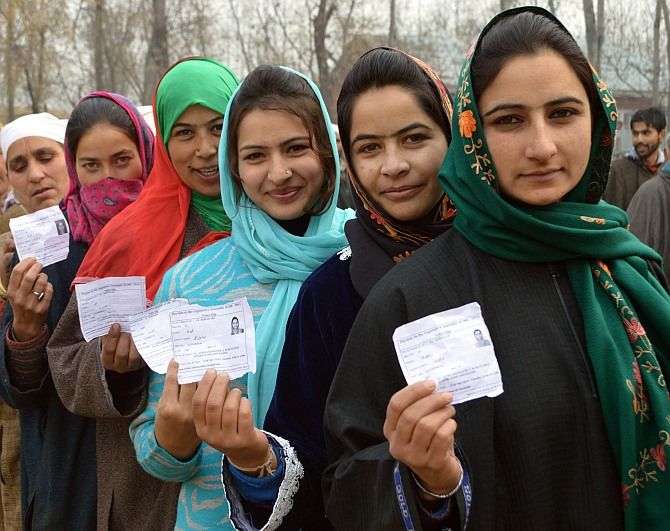 In its written views to the Union law ministry, the Commission has advised that if 'there is a situation where the dissolution of the Lok Sabha cannot be avoided', the five-year term cannot be shortened. Subhomoy Bhattacharjee reports.
In its written views to the Union law ministry, the Commission has advised that if 'there is a situation where the dissolution of the Lok Sabha cannot be avoided', the five-year term cannot be shortened. Subhomoy Bhattacharjee reports.
The Election Commission has advised the Centre that simultaneous elections will mean even if a government fails a no-confidence motion, the subsequent elections should elect the House for only the remainder of the five-year term.
This would apply for state assemblies too.
In its written views to the Union law ministry, the Commission has advised that if 'there is a situation where the dissolution of the Lok Sabha cannot be avoided', the five-year term cannot be shortened.
There will be two alternatives in that case. If the remainder of the Lok Sabha's term is 'not long, there could be a provision for the President to run the administration of the country on the aid and advise of the Council of Ministers'.
If the remainder of the term is long, 'elections may be conducted and the term of the House should be for the rest of what would have been the original term'.
The views of the Election Commission are expected to be discussed by the Union Cabinet soon as part of a comprehensive note on the subject of simultaneous election to the states and Centre.
The views were asked for by the law ministry as part of a Cabinet note on the subject. The note also says that to begin the process of simultaneous elections, the term of all the state assemblies should also be terminated together.
'That may also mean, to begin with, as a one-time measure, the term of the existing legislative assemblies will have to be either extended beyond five years or curtailed, so that fresh elections can be held simultaneously,' the Commission notes.
It, however, goes on to say under the current Constitution, the only way the terms of a state assembly can be extended is through invocation of Emergency provisions.
Terms can be shortened, however, on the recommendation by the state government.
In 2018 for instance, where states like Karnataka, Madhya Pradesh, and Chhattisgarh will go to polls to elect a new assembly, they will have to decide whether to invoke the Emergency provisions.
Declaration of Emergency for states under Article 356 can occur only when the President, on receipt of a report from the government of a state or otherwise, 'is satisfied that a situation has arisen in which the government of the state cannot be carried on by the provisions of the Constitution'.
Chances of such a referral are most unlikely to provide only for simultaneous elections to occur.
For by-elections, the Commission has suggested creating a window of one and a half month every year for holding 'all by-elections that become due in a particular year'.
The Centre has been mulling over the possible alternatives to bring elections to the state assemblies and the Centre together to cut down on election expenditure and free the political executive from having to remain in election mode for a considerable period of the year.
But as the note from the Election Commission makes out, without at least five amendments to the Constitution, this is impossible.











